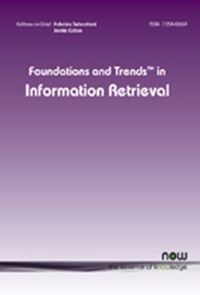可解释的建议:一项调查和新的观点
IF 12.9
2区 计算机科学
Q1 COMPUTER SCIENCE, INFORMATION SYSTEMS
引用次数: 648
摘要
可解释推荐试图开发的模型不仅能产生高质量的推荐,还能产生直观的解释。这些解释可以是事后的,也可以直接来自可解释模型(在某些上下文中也称为可解释模型或透明模型)。可解释推荐试图解决为什么的问题:通过向用户或系统设计人员提供解释,它帮助人们理解为什么某些项目被算法推荐,其中人类可以是用户或系统设计人员。可解释性推荐有助于提高推荐系统的透明度、说服力、有效性、可信度和满意度。它还有助于系统设计人员更好地进行系统调试。近年来,大量可解释的推荐方法——尤其是基于模型的方法——已经被提出并应用于实际系统中。在本调查中,我们对可解释推荐的研究进行了全面的综述。我们首先通过将推荐问题分为5W (what, when, who, where, why)来强调可解释推荐在推荐系统研究中的地位。然后,我们从三个角度对可解释性推荐进行了全面的调查:1)我们提供了一个按时间顺序排列的可解释性推荐研究时间表。2)我们提供了一个二维的分类法对现有的可解释推荐研究进行分类。3)总结了可解释推荐如何应用于不同的推荐任务。我们还专门用一章来讨论更广泛的IR和AI/ML研究中的解释视角。最后,我们讨论了可解释推荐研究领域的未来发展方向。本文章由计算机程序翻译,如有差异,请以英文原文为准。
Explainable Recommendation: A Survey and New Perspectives
Explainable recommendation attempts to develop models that generate not only high-quality recommendations but also intuitive explanations. The explanations may either be post-hoc or directly come from an explainable model (also called interpretable or transparent model in some contexts). Explainable recommendation tries to address the problem of why: by providing explanations to users or system designers, it helps humans to understand why certain items are recommended by the algorithm, where the human can either be users or system designers. Explainable recommendation helps to improve the transparency, persuasiveness, effectiveness, trustworthiness, and satisfaction of recommendation systems. It also facilitates system designers for better system debugging. In recent years, a large number of explainable recommendation approaches -- especially model-based methods -- have been proposed and applied in real-world systems.
In this survey, we provide a comprehensive review for the explainable recommendation research. We first highlight the position of explainable recommendation in recommender system research by categorizing recommendation problems into the 5W, i.e., what, when, who, where, and why. We then conduct a comprehensive survey of explainable recommendation on three perspectives: 1) We provide a chronological research timeline of explainable recommendation. 2) We provide a two-dimensional taxonomy to classify existing explainable recommendation research. 3) We summarize how explainable recommendation applies to different recommendation tasks. We also devote a chapter to discuss the explanation perspectives in broader IR and AI/ML research. We end the survey by discussing potential future directions to promote the explainable recommendation research area and beyond.
求助全文
通过发布文献求助,成功后即可免费获取论文全文。
去求助
来源期刊

Foundations and Trends in Information Retrieval
COMPUTER SCIENCE, INFORMATION SYSTEMS-
CiteScore
39.10
自引率
0.00%
发文量
3
期刊介绍:
The surge in research across all domains in the past decade has resulted in a plethora of new publications, causing an exponential growth in published research. Navigating through this extensive literature and staying current has become a time-consuming challenge. While electronic publishing provides instant access to more articles than ever, discerning the essential ones for a comprehensive understanding of any topic remains an issue. To tackle this, Foundations and Trends® in Information Retrieval - FnTIR - addresses the problem by publishing high-quality survey and tutorial monographs in the field.
Each issue of Foundations and Trends® in Information Retrieval - FnT IR features a 50-100 page monograph authored by research leaders, covering tutorial subjects, research retrospectives, and survey papers that provide state-of-the-art reviews within the scope of the journal.
 求助内容:
求助内容: 应助结果提醒方式:
应助结果提醒方式:


